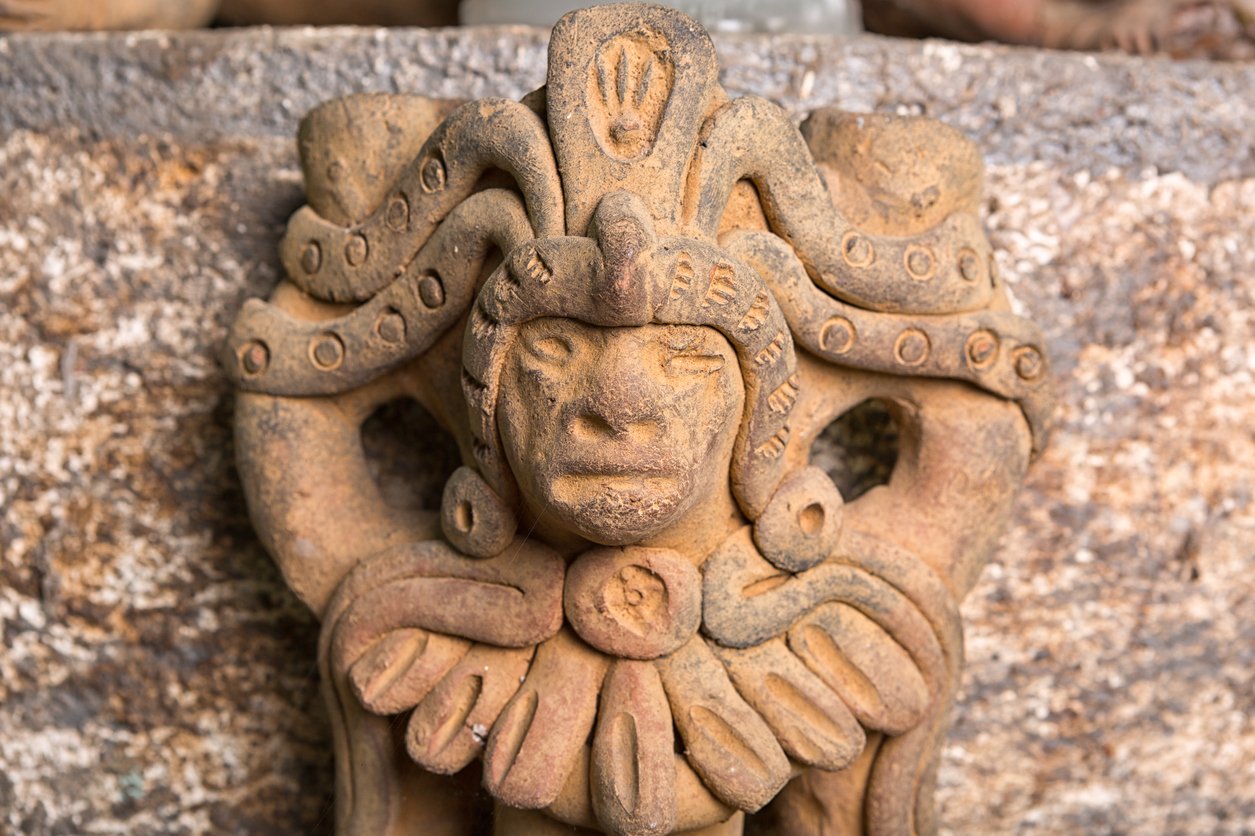Archaeologists discover an ancient Mayan 'megalopolis' hidden in a Central American jungle


A free daily email with the biggest news stories of the day – and the best features from TheWeek.com
You are now subscribed
Your newsletter sign-up was successful
Laser-toting archaeologists have discovered an entire new city in the Central American jungle.
National Geographic reported Thursday that researchers have uncovered proof that Mayan civilization was far more advanced than previously thought. Using laser-created scans of the jungles in northern Guatemala, researchers "digitally removed the tree canopy" from images of the area, National Geographic explained. The editing — made possible by a technology called LiDAR, which scans pictures taken at a birds'-eye view — allowed researchers to peer beneath the dense fauna.
The result was the discovery that the jungles were concealing a Mayan "megalopolis" in their shadows. Underneath the leaves, researchers found more than 60,000 structures that were previously unknown, including "houses, palaces, [and] elevated highways," National Geographic reported. The structures likely created a series of connected cities.
The Week
Escape your echo chamber. Get the facts behind the news, plus analysis from multiple perspectives.

Sign up for The Week's Free Newsletters
From our morning news briefing to a weekly Good News Newsletter, get the best of The Week delivered directly to your inbox.
From our morning news briefing to a weekly Good News Newsletter, get the best of The Week delivered directly to your inbox.
The new discovery prompted the researchers to revise up previous calculations of the Mayan population. Scientists have long estimated that Mayan civilization had about 5 million inhabitants, but one archaeologist said the LiDAR findings indicate that number is way too low: "With this new data it's no longer unreasonable to think that there were 10 to 15 million people there," he said.
The LiDAR initiative is being led by the PACUNAM Foundation, a Guatemalan nonprofit that seeks to further research and preservation efforts in the region. And the search for Mayan ruins is far from over: Scientists leading the charge only scanned roughly 800 square miles of jungle in this initial sweep, and apparently still have more than 5,000 square miles to go. Read more at National Geographic.
A free daily email with the biggest news stories of the day – and the best features from TheWeek.com
Kelly O'Meara Morales is a staff writer at The Week. He graduated from Sarah Lawrence College and studied Middle Eastern history and nonfiction writing amongst other esoteric subjects. When not compulsively checking Twitter, he writes and records music, subsists on tacos, and watches basketball.
-
 House votes to end Trump’s Canada tariffs
House votes to end Trump’s Canada tariffsSpeed Read Six Republicans joined with Democrats to repeal the president’s tariffs
-
 Bondi, Democrats clash over Epstein in hearing
Bondi, Democrats clash over Epstein in hearingSpeed Read Attorney General Pam Bondi ignored survivors of convicted sex offender Jeffrey Epstein and demanded that Democrats apologize to Trump
-
 Are Big Tech firms the new tobacco companies?
Are Big Tech firms the new tobacco companies?Today’s Big Question Trial will determine if Meta, YouTube designed addictive products
-
 Blue Origin launches Mars probes in NASA debut
Blue Origin launches Mars probes in NASA debutSpeed Read The New Glenn rocket is carrying small twin spacecraft toward Mars as part of NASA’s Escapade mission
-
 Dinosaurs were thriving before asteroid, study finds
Dinosaurs were thriving before asteroid, study findsSpeed Read The dinosaurs would not have gone extinct if not for the asteroid
-
 SpaceX breaks Starship losing streak in 10th test
SpaceX breaks Starship losing streak in 10th testspeed read The Starship rocket's test flight was largely successful, deploying eight dummy satellites during its hour in space
-
 Rabbits with 'horns' sighted across Colorado
Rabbits with 'horns' sighted across Coloradospeed read These creatures are infected with the 'mostly harmless' Shope papilloma virus
-
 Lithium shows promise in Alzheimer's study
Lithium shows promise in Alzheimer's studySpeed Read Potential new treatments could use small amounts of the common metal
-
 Scientists discover cause of massive sea star die-off
Scientists discover cause of massive sea star die-offSpeed Read A bacteria related to cholera has been found responsible for the deaths of more than 5 billion sea stars
-
 'Thriving' ecosystem found 30,000 feet undersea
'Thriving' ecosystem found 30,000 feet underseaSpeed Read Researchers discovered communities of creatures living in frigid, pitch-black waters under high pressure
-
 New York plans first nuclear plant in 36 years
New York plans first nuclear plant in 36 yearsSpeed Read The plant, to be constructed somewhere in upstate New York, will produce enough energy to power a million homes
